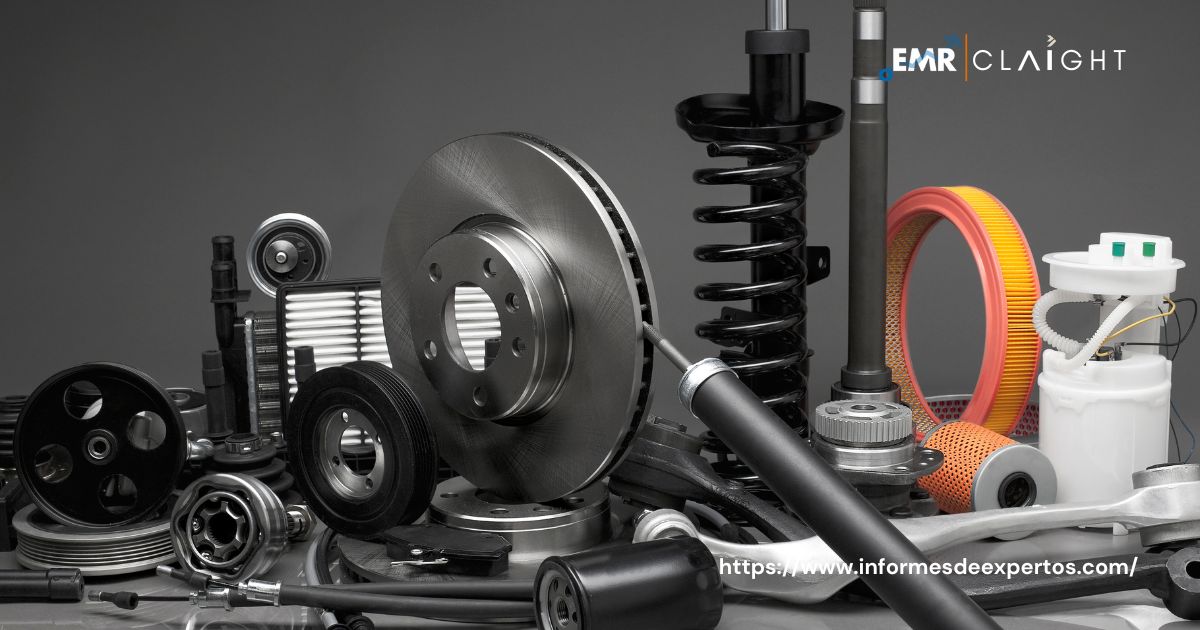The auto parts manufacturing market represents a crucial sector within the automotive industry, supplying components essential for the production and maintenance of vehicles. From engines to electronics, the diverse range of parts manufactured fuels the assembly lines of automotive giants and sustains the aftermarket sector, ensuring vehicle functionality and safety.
Overview:
The auto parts manufacturing market encompasses a broad spectrum of components, including but not limited to engine parts, transmission and suspension systems, electrical and electronic systems, body and chassis parts, as well as interior and exterior accessories. These parts are produced through various processes, such as casting, machining, stamping, molding, and assembly, often involving advanced technologies and materials to meet stringent quality and performance standards.
Market Dynamics:
The auto parts manufacturing market is heavily influenced by the global automotive industry’s trends and dynamics. Factors such as vehicle production volumes, technological advancements, regulatory requirements, consumer preferences, and economic conditions play significant roles in shaping market demand and supply.
- Vehicle Production Trends: Fluctuations in vehicle production volumes directly impact the demand for auto parts. Emerging markets, such as China and India, have witnessed substantial growth in vehicle production, driving demand for auto components. Conversely, mature markets may experience stagnation or decline, affecting the overall market dynamics.
- Technological Advancements: The automotive industry is undergoing a transformative phase with the advent of electric vehicles (EVs), autonomous driving technologies, and lightweight materials. Consequently, auto parts manufacturers are compelled to innovate and adapt to these technological shifts, leading to the development of advanced components such as electric drivetrains, sensor systems, and composite materials.
- Regulatory Environment: Stringent regulations pertaining to emissions, fuel efficiency, and safety standards compel auto manufacturers to integrate advanced technologies into their vehicles. Auto parts manufacturers must comply with these regulations, driving investments in research and development to develop eco-friendly and compliant components.
- Consumer Preferences: Changing consumer preferences, such as demand for connectivity, comfort, and customization, influence the design and production of auto parts. Manufacturers must align their offerings with evolving consumer trends to maintain a competitive edge in the market.
- Supply Chain Dynamics: The auto parts manufacturing market is characterized by complex supply chains, with manufacturers sourcing raw materials, components, and sub-assemblies from various suppliers globally. Disruptions in the supply chain, whether due to natural disasters, geopolitical tensions, or logistical challenges, can impact production schedules and supply reliability.
Key Players:
The auto parts manufacturing market is highly fragmented, with numerous players ranging from multinational corporations to small and medium-sized enterprises (SMEs). Some of the prominent players in the market include:
- Robert Bosch GmbH: A leading supplier of automotive components and systems, Bosch is renowned for its expertise in areas such as automotive electronics, powertrain technology, and safety systems.
- Continental AG: Another major player in the auto parts manufacturing sector, Continental specializes in automotive powertrain, chassis, interior, and safety technologies, catering to both OEMs and aftermarket customers.
- Denso Corporation: Denso is a key supplier of automotive components, particularly in the fields of thermal, powertrain, and electronics systems. The company is known for its focus on innovation and quality.
- ZF Friedrichshafen AG: ZF is a global leader in driveline and chassis technology, supplying transmissions, axles, steering systems, and advanced driver assistance systems (ADAS) to automotive manufacturers worldwide.
- Valeo SA: Valeo is a prominent supplier of automotive lighting, thermal systems, powertrain components, and electronics solutions, catering to the evolving needs of the automotive industry.
Future Outlook:
The auto parts manufacturing market is poised for significant growth driven by technological advancements, evolving consumer preferences, and the transition toward electric and autonomous vehicles. Key trends shaping the future of the market include:
- Electric Vehicle Revolution: The shift toward electric vehicles is expected to reshape the auto parts manufacturing landscape, with increased demand for components such as batteries, electric motors, and power electronics.
- Autonomous Driving Technologies: The development of autonomous vehicles necessitates sophisticated sensor systems, computing platforms, and connectivity solutions, presenting new opportunities for auto parts manufacturers.
- Digitalization and Industry 4.0: The adoption of digital technologies such as artificial intelligence, IoT, and data analytics is transforming manufacturing processes, enabling greater efficiency, flexibility, and predictive maintenance in the production of auto parts.
- Sustainability and Circular Economy: With growing emphasis on sustainability, auto parts manufacturers are exploring eco-friendly materials, recycling initiatives, and circular economy models to minimize environmental impact throughout the product lifecycle.


